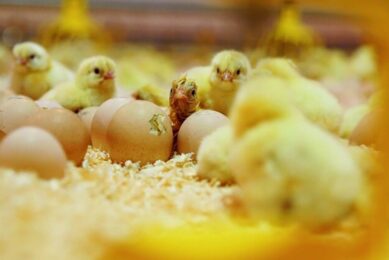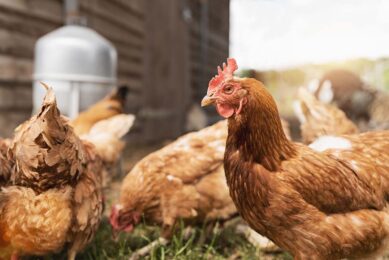Blurring the distinction between animals and humans
A new initiative in the United States by animal activists wants to claim legal rights for animals which are regarded in most State law as “property”. By Simon Shane
A conference entitled, “Taking action for animals” organized in Washington, DC by the Humane Society of the United States, the Animal Protection Institute, and Farm Sanctuary developed some disturbing conclusions of significance to the livestock industry.
Wayne Pacelle, President of the Humane Society of the United States espouses the principle that there is no ethical distinction between animals and humans. An example of this extremist rhetoric is his reference to domestic dogs as “Canine Americans”.
The intent of this new initiative on animal activism is to claim legal rights for animals which are regarded in most State law as “property”. A broad range of anti-cruelty laws does however protect livestock and companion species. Free living animals are also protected by legislation controlling hunting and the protection of endangered species. The conference attendees pledged to continue opposing all forms of livestock production with specific attention to intensive production systems.
In a related issue, the Humane Society of the United States has targeted Ben and Jerry’s, currently owned by the Dutch conglomerate Unilever, the manufacturer of a premium brand of US ice cream. Initially established by environmental activists Ben Cohen and Jerry Greenfield the Ben and Jerry’s brand has created an image based on natural ingredients, respect for the earth and environment, and support for family farms. The Humane Society of the U.S. is publicizing the fact that Ben and Jerry’s purchases large quantities of pasteurized egg product from Michael Foods, the fourth largest egg producer and the major egg-breaker in the USA. Because of their commitment to further processing, Michael Foods initially declined to participate in the United Egg Producers initiative to establish minimum acceptable stocking densities and other requirements incorporated into a code of practice for egg producers. Whole Foods Market, Inc. and Trader Joe’s which no longer market eggs from caged birds have been pressured by the activist group to force Ben and Jerry’s to obtain liquid egg product from alternative suppliers conforming to more acceptable standards of poultry welfare.
Experience has shown that it is impossible to compromise with or to placate animal rights extremists who espouse a vegan agenda. What is important is for the industry to recognize the needs of specific markets and to be proactive in supplying products which comply with the desires of specific consumer groups. Ben and Jerry’s brand ice cream carries an environmentally friendly image which appeals to purchasers who would be expected to have sentiments favoring high standards of animal welfare. Accordingly, the sourcing and acquisition of ingredients should follow the dictates of the market, irrespective of the differential in cost between generic and cage-free eggs.
The lesson to be learned from the Ben and Jerry’s case and the accompanying strident opposition from the consortium of animal welfare and animal rights groups is that compromise is not a practical reality when dealing with irrational antagonists. The intensive animal industry including egg producers should supply what the market demands but at a price commensurate with return on investment and profit. If a certain segment of consumers place radical or unjustifiable restrictions on production then they should be prepared to pay a premium for products satisfying their needs. It is unfair for a raucous minority with an extremist agenda to impose their mores and will on the majority of consumers who are currently well served by poultry producers and integrators.
By: Simon Shane
By: Simon Shane
Join 31,000+ subscribers
Subscribe to our newsletter to stay updated about all the need-to-know content in the poultry sector, three times a week. Beheer
Beheer








 WP Admin
WP Admin  Bewerk bericht
Bewerk bericht